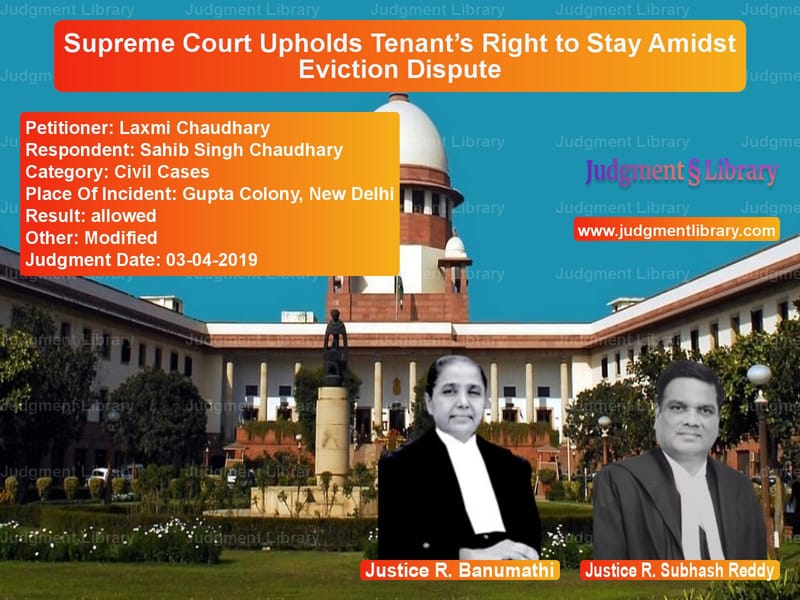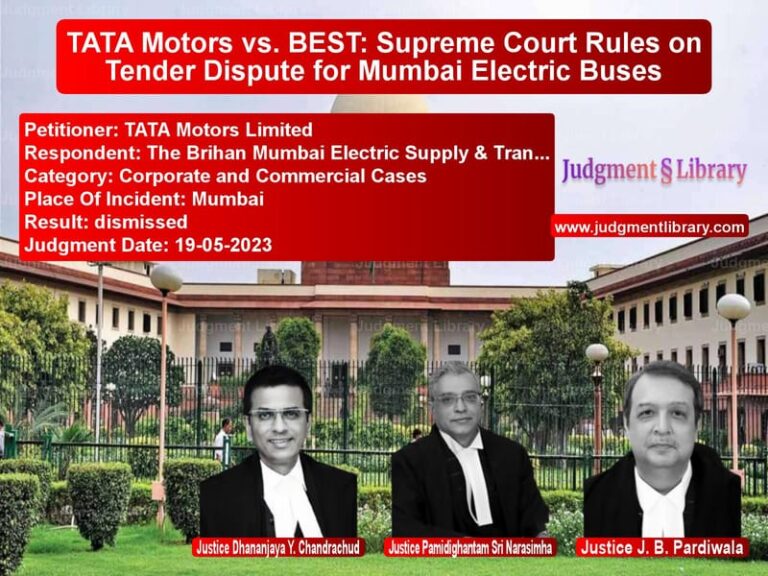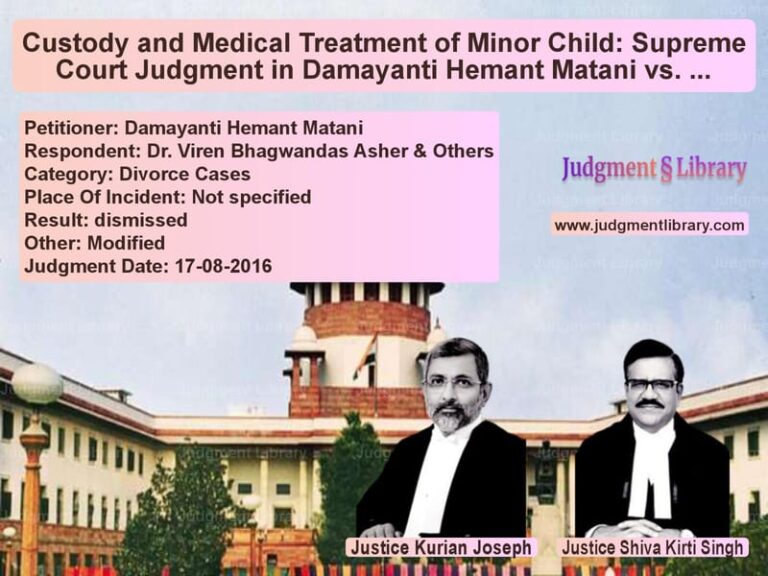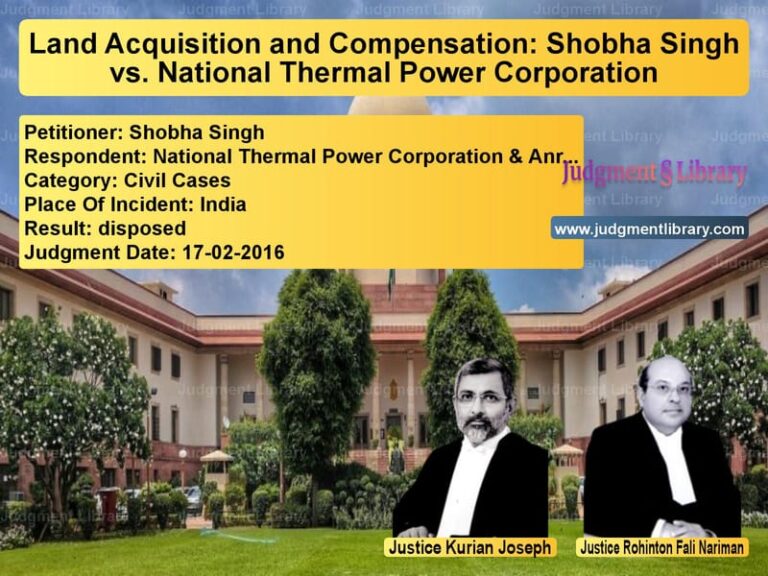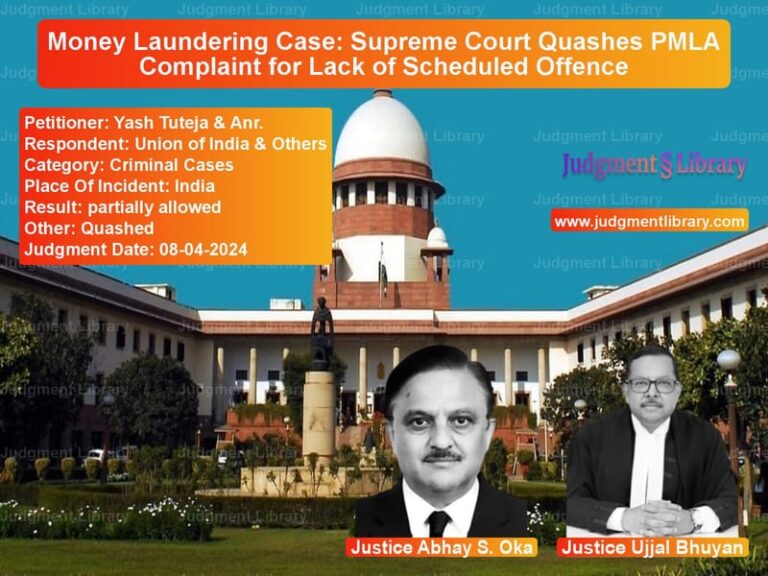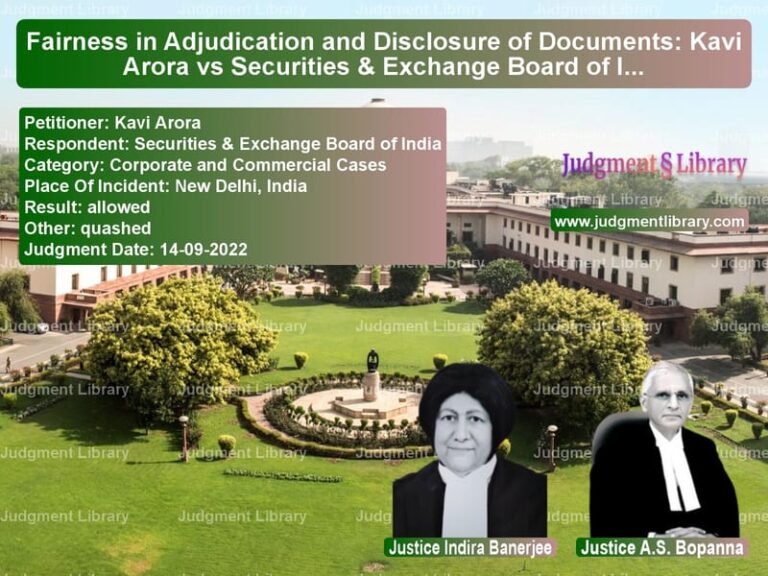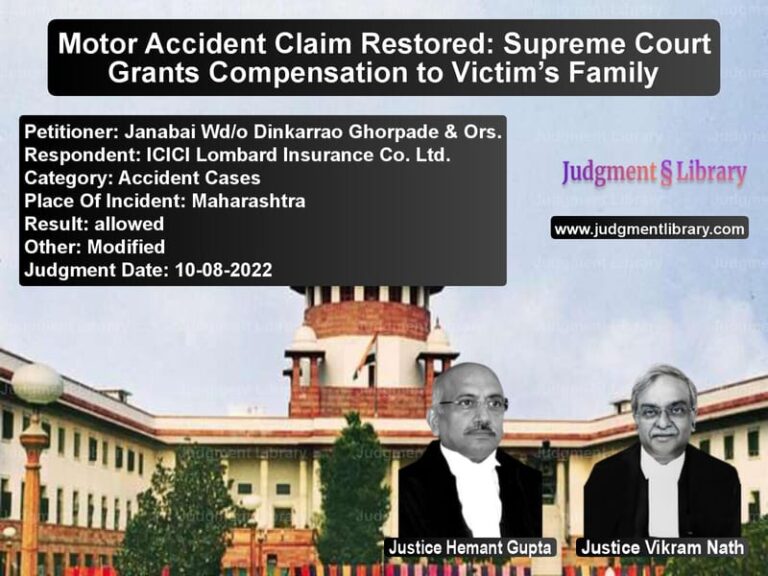Supreme Court Upholds Tenant’s Right to Stay Amidst Eviction Dispute
The Supreme Court of India, in its judgment dated April 3, 2019, ruled in favor of a tenant in an eviction dispute, clarifying the conditions under which a tenant can continue occupying a rented property during pending litigation. The case, Laxmi Chaudhary v. Sahib Singh Chaudhary, involved an appeal against the Delhi High Court’s decision to vacate the stay granted to the tenant due to non-compliance with payment conditions. The Supreme Court set aside the High Court’s order, allowing the tenant to stay in possession subject to revised payment terms.
Background of the Case
The dispute concerned a rental property located in Gupta Colony, New Delhi. The appellant, Laxmi Chaudhary, was a tenant occupying the basement and the second floor of the building. The respondent, Sahib Singh Chaudhary, was the landlord who sought eviction on grounds of non-payment and damages for unauthorized use of the premises.
On December 21, 2017, the Trial Court ruled in favor of the landlord, ordering the eviction of the tenant and directing her to pay damages at a rate of Rs. 20,000 per month from January 17, 2008, until possession was handed over. The court also issued a permanent injunction against further unauthorized occupation.
High Court Proceedings
The appellant challenged the eviction order before the Delhi High Court. On August 27, 2018, the High Court admitted the appeal and granted a stay on eviction, subject to the tenant making payments:
- Rs. 7,500 per month for the period from January 17, 2008, to December 31, 2017.
- Rs. 15,000 per month from January 1, 2018, onward.
- Payments were to be made by the 30th day of each month, failing which interest at 6% per annum would be applicable.
The tenant failed to comply with these conditions, leading the High Court to vacate the stay on December 4, 2018. This prompted the tenant to appeal before the Supreme Court.
Petitioner’s (Tenant’s) Arguments
- The appellant had deposited Rs. 10,80,000 as per the Supreme Court’s earlier directive.
- She had also been paying Rs. 15,000 per month for use and occupation.
- The High Court’s order was harsh, considering that she had made substantial payments without prejudice to her pending appeal.
- The eviction stay should be restored to prevent undue hardship.
Respondent’s (Landlord’s) Arguments
- The tenant had defaulted on the payment schedule set by the High Court.
- The Trial Court’s eviction order was justified based on long-standing non-payment and unauthorized use.
- The High Court had rightly vacated the stay since compliance with payment conditions was mandatory.
- The basement, previously occupied by the tenant as a beauty parlor, had already been vacated.
Supreme Court’s Observations
The Supreme Court examined the facts and made the following key observations:
- The appellant had deposited Rs. 10,80,000 before the High Court as per the Supreme Court’s directive.
- She had been making monthly payments of Rs. 15,000 for use and occupation.
- Considering these payments, vacating the stay was harsh and not justified.
- Since the basement had already been vacated, further payments should only be for the second floor.
Final Judgment
The Supreme Court ruled:
“The impugned order of the High Court is set aside, and the stay granted in favor of the appellant-defendant qua the second floor shall stand restored. The appellant shall pay Rs. 6,000 per month for use and occupation of the second floor until the disposal of the appeal pending before the High Court.”
Additionally, the Court permitted the landlord to withdraw the deposited amounts, subject to filing an affidavit stating that such withdrawal would be subject to the final outcome of the case.
Impact of the Judgment
This ruling has significant implications for tenant-landlord disputes:
- Reaffirms Tenant’s Rights: Ensures that tenants facing eviction have a fair opportunity to appeal while continuing to occupy the premises.
- Limits Harsh Eviction Orders: Protects tenants from being evicted solely due to delayed payments when substantial compliance has been met.
- Ensures Fair Compensation to Landlords: Sets reasonable payment terms for continued occupation.
- Encourages Settlement: Allows both parties to continue legal proceedings without undue hardship.
Conclusion
The Supreme Court’s ruling in Laxmi Chaudhary v. Sahib Singh Chaudhary balances the rights of tenants and landlords. By restoring the stay on eviction while ensuring reasonable compensation to the landlord, the judgment provides a fair and just resolution to ongoing rental disputes.
Petitioner Name: Laxmi Chaudhary.Respondent Name: Sahib Singh Chaudhary.Judgment By: Justice R. Banumathi, Justice R. Subhash Reddy.Place Of Incident: Gupta Colony, New Delhi.Judgment Date: 03-04-2019.
Don’t miss out on the full details! Download the complete judgment in PDF format below and gain valuable insights instantly!
Download Judgment: Laxmi Chaudhary vs Sahib Singh Chaudhar Supreme Court of India Judgment Dated 03-04-2019.pdf
Direct Downlaod Judgment: Direct downlaod this Judgment
See all petitions in Landlord-Tenant Disputes
See all petitions in Damages and Compensation
See all petitions in Contract Disputes
See all petitions in Judgment by R. Banumathi
See all petitions in Judgment by R. Subhash Reddy
See all petitions in allowed
See all petitions in Modified
See all petitions in supreme court of India judgments April 2019
See all petitions in 2019 judgments
See all posts in Civil Cases Category
See all allowed petitions in Civil Cases Category
See all Dismissed petitions in Civil Cases Category
See all partially allowed petitions in Civil Cases Category

